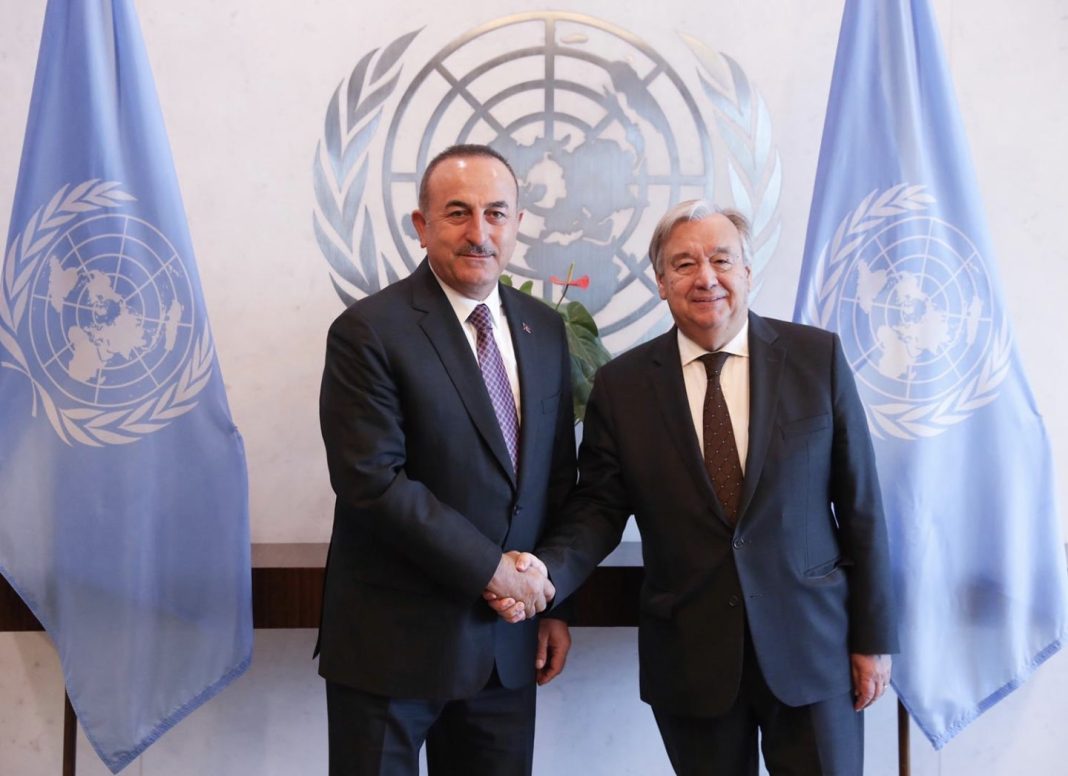By Janet Ekstract
ISTANBUL- In a recent press conference, Turkish Foreign Minister Mevlut Cavusoglu made it very clear that Turkiye does not recognize the Russian referendums. Meanwhile, on a phone call with Ukrainian President Zelensky on September 28, Turkish President Erdogan said that Russia’s referendums will complicate the process of bringing Ukraine and Russia together for negotiations toward a ceasefire.
In a statement released by Erdogan’s office, the Turkish leader said that his country “stands ready to provide every kind of support for the settlement of the war through peaceful negotiations.” After their phone call, Zelensky expressed his gratitude to Erdogan for what he commented is Türkiye’s “unwavering support for the territorial integrity and sovereignty of Ukraine as well as for the principled position on non-recognition of the illegal pseudo-referendums that Russia held in the occupied territories.” Erdogan has offered to initiate preparations for a demilitarized zone around Zaporizhzhia nuclear plant in occupied Enerhodar, Zaporizhzhia Oblast.
On September 28, at gunpoint, Ukrainians were forced to vote in a referendum in occupied territories, that Putin declares belongs to Russia, with what he claims is 98% succession support from Ukrainians. The referendums have been condemned by the UN, the EU, the U.S., Turkiye and a number of other countries as well. Political analysts and commentators project Russia is using the referendum to annex Donetsk, Kherson, Luhansk and Zaporizhzhia oblasts. Zelensky had warned Russia that there can be no negotiations after the referendums. Cavusoglu said a week ago, “There is a need for a more proactive approach to diplomacy and mediation,” adding that Russia’s referendum moves, show just how serious the situation really is.
Cavusoglu spoke about the referendum situation on the sidelines of the 77th UN General Assembly while co-chairing the 12th Ministerial Meeting of UN Groups of Friends Mediation – commenting that Turkiye’s aim is to bring about a lasting negotiated settlement between Russia and Ukraine through this organization. He said the longer the war goes on, the more difficult it will be to reach any lasting solution to the conflict. Cavusoglu reiterated that only through dialogue and diplomacy can there be a way forward to exit the ongoing conflict. Citing the Istanbul Grain Deal as an example of diplomacy, Cavusoglu said: “Innovative approaches like this in conflict resolution and mediation could be used to alleviate other global issues.”
On Thursday, on an even more serious note, Russian President Vladimir Putin gave his government permission to close international road traffic to what Putin labeled as “unfriendly countries.” In a decree, he also gave the government the power to decide when such a measure would be implemented. Some political analysts and experts on Russia predicted such a scenario several weeks ago, speaking to TRT World about the situation. U.S. General David Petraeus who led the invasion in Iraq under the Bush administration, echoes what the majority of analysts are saying – “Putin is cornered,” and Petraeus added that Putin is making desperate moves because of it. Petraeus said that Putin’s threats of using nuclear weapons are real and should be taken seriously. He added that the U.S. has made it clear to Russia, in private talks, that should Putin decide to go that route, the U.S. is prepared to respond in the most decisive way possible.




